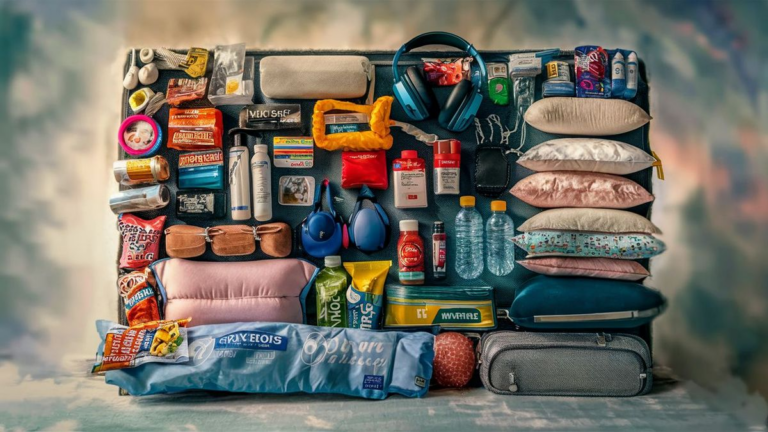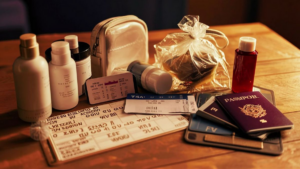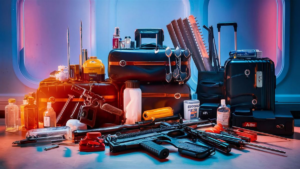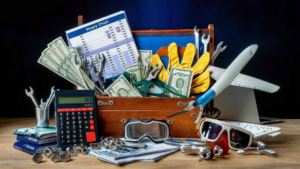Are you tired of experiencing discomfort or even pain due to ear popping during flights? We understand the inconvenience it can cause, but fear not, as there are several strategies you can employ to alleviate this issue and ensure a more pleasant journey.
Understanding Ear Popping on Planes
Before delving into preventive measures, it’s crucial to comprehend why ears pop during flights. The primary reason is the disparity in air pressure between the cabin and your middle ear. As the aircraft ascends or descends, the pressure changes rapidly, causing the eustachian tubes to open and equalize the pressure. This process often leads to the sensation of popping or fullness in the ears.
Effective Prevention Techniques
Now, let’s explore various techniques to prevent ears from popping on a plane:
Chewing Gum or Swallowing
Engaging in activities that involve chewing or swallowing, such as chewing gum or swallowing water, can help open the eustachian tubes and equalize the pressure in your ears.
Yawning or Jaw Exercises
Encourage yawning or perform simple jaw exercises, such as moving your jaw from side to side or opening and closing your mouth wide, to promote eustachian tube function.
Nasal Decongestants
If you’re prone to ear popping or have nasal congestion, consider using nasal decongestants before your flight. These medications can help reduce inflammation and congestion, allowing for easier equalization of pressure.
Earplugs or Pressure-Regulating Earplugs
Wearing earplugs during takeoff and landing can help regulate air pressure changes and minimize discomfort. Alternatively, specialized pressure-regulating earplugs are designed specifically for air travel and can provide additional relief.
Stay Hydrated
Ensure you stay hydrated throughout your flight by drinking plenty of water. Hydration helps keep your mucous membranes moist and can aid in preventing ear discomfort.
Avoid Sleep During Descent
Try to remain awake during the descent phase of your flight, as swallowing and yawning are more effective when you’re conscious. If you doze off, make a conscious effort to wake up periodically and swallow.
By implementing these preventive techniques, you can significantly reduce the likelihood of experiencing ear popping discomfort during your next plane journey. Remember to be proactive and address any underlying nasal congestion or allergies before your flight for optimal comfort.
Frequently Asked Questions
Here are some commonly asked questions about preventing ears from popping on a plane:
- Why do ears pop on planes?
- Is there a way to prevent ear popping?
- How does chewing gum help?
- Are there any specialized earplugs for preventing ear popping?
Ears pop on planes due to the rapid changes in air pressure between the cabin and the middle ear. This pressure difference causes the eustachian tubes to open and equalize the pressure, resulting in the sensation of popping or fullness.
Yes, there are several preventive techniques you can try, including chewing gum, swallowing, yawning, using nasal decongestants, wearing earplugs, staying hydrated, and avoiding sleep during descent.
Chewing gum or swallowing encourages the opening of the eustachian tubes, allowing for the equalization of pressure in the ears.
Yes, there are pressure-regulating earplugs designed specifically for air travel. These earplugs help regulate air pressure changes during takeoff and landing, minimizing discomfort.
Additional Tips for Comfortable Flying
Aside from preventing ear popping, here are some extra tips to enhance your comfort during flights:
- Choose the right seat: Opt for a seat near the wings for a smoother ride.
- Stay relaxed: Practice deep breathing or listen to calming music to alleviate anxiety.
- Wear comfortable clothing: Dress in layers and avoid tight clothing to ensure unrestricted movement.
Understanding Airplane Cabin Pressure
It’s essential to grasp the concept of airplane cabin pressure and how it affects the body:
| Altitude | Cabin Pressure |
|---|---|
| Ground Level | Normal pressure (sea level) |
| Cruising Altitude | Lower pressure (equivalent to 6,000-8,000 feet above sea level) |
| Descent | Gradual increase in pressure to normal levels |
See also:






